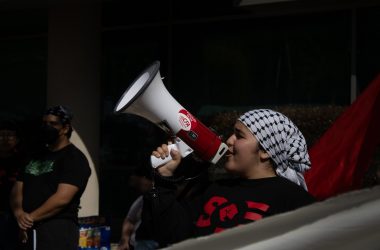Lebanese Prime Minister Najib Mikati resigned on Saturday, sparking concerns that the often war-torn country may soon plunge into more unrest.
According to Al-Jazeera, Mikati resigned after “blaming government infighting during a time of rising sectarian tensions.”
Though Lebanon is thousands of miles away from the U.S, actions that occur within the nation of roughly four million people can have a profound impact on global politics.
To better understand Lebanon’s significance, one must understand its past and current relationships with Hezbollah and Syria.
According to a recent article from The New Yorker, Hezbollah, a militant group and political party based in Lebanon, has been facing eradication as the civil war in Syria grows.
Hezbollah, which has been sending its troops to fight alongside the Bashar al-Assad loyalists in Syria, faces possible extinction if one of its largest supporters, Syria, falls, according to The New Yorker.
Financed by Iran and armed by Syria, Hezbollah has been a constant thorn in the side of Israel, the foe of the so-called Shiite Axis.
If the money and weapons from Iran and Syria were to dry up, Hezbollah would have virtually no support.
So what does this have to do with the U.S.?
Lebanon, whose past with the U.S. is often marred by the killing of 63 Americans in a Beirut embassy in 1983, has faced great internal struggle in the years following Hezbollah’s creation.
War broke out between Hezbollah and Israel in 2006 and nearly 1,200 Lebanese civilians were killed, according to The New Yorker.
What happens in Lebanon will not stay in Lebanon for very long. If peace is to be preserved, the U.S. should pay more attention to the small nation.
Regardless of one’s support or disdain for Hezbollah, one must acknowledge that the persuasive party is supported heavily by Iran and Syria, two governments that are not particularly fond of the U.S.
Iran, which uses Syria as a middleman to send weapons and cash to Lebanon, has continually supported Hezbollah since the 1980s.
If the U.S. is to maintain order in an often-turbulent region of the world, a strict diplomatic policy must be formed.
Rather than tiptoe on support for Israel or Palestine, Bashar al-Assad or the Syrian rebels, President Barack Obama must unilaterally voice an opinion.
Lebanon’s case is entirely different than Syria’s. However, to let a country of four million be destroyed by political impasses would be abominable.
To make it clear, I’m not advocating for the U.S. to intervene militarily in Lebanon, Syria or Iran. Instead of war, diplomacy must be used to help the nations better coexist.
For once, let’s focus on the little guy. He may be just as important as his big brothers.
Shane Newell is a sophomore journalism major and an assistant city editor for the Daily 49er.



